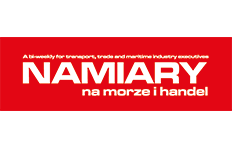pomorski park naukowo- technologiczny gdynia
Aleja Zwycięstwa 96/98
81-451 Gdynia
What are the challenges facing TSL in the coming years? The recent analysis of trends and new solutions allowed the PwC advisory-consulting company to identify 5 main forces which, according to the report, will influence the shape of the sector. Supposedly, these are: digitalisation, shifts in international trade, changes in processes through software solutions, external changes in trade, changes in processes through hardware. The document indicates that the changes being observed are progressing rapidly, the future is emerging right in front of our eyes. It is enough to say that the e-commerce potentate Amazon, based on internally developed algorithms, can already predict what a given customer will buy even before they place their order. Robotisation in this sector is inevitable and research results suggest that within the next dozen years or so, around 50% of actions in international logistical-forwarding processes will be performed by machines. That does not necessarily translate into an increase of unemployment, as these machines will have to be built and supervised, even if they will be able to work autonomously. Additionally, 54% of Polish forwarders and logisticians that took part in the survey predict income increase in the industry due to digitisation. Another number that TSL entities should examine is 41 - that is the percentage of customer decisions depending on efficient logistics, delivering the selected goods to their destination and on time. When analysing the issue of trade route shift, Polish TSL entities see a challenge in the New Silk Road. The number of train connections between China and the EU is increasing rapidly - in 2017 their number was 3673 and last year it was already 6300! As we can see, the possibilities (and also threats) for the industry are numerous and their acknowledgment, implementing innovative solutions, smart calculations, and sound judgement in terms of profit and loss may determine the future of many TSL companies.
A separate issue is the topic of shipowners “making landfall”, i.e. establishing direct relations with carriers without a middle man, i.e. freight forwarders. The latter observe this process with obvious concern, all the more since it is gaining momentum - in the case of the Polish market this means e.g. that now, over half of maritime transport operations is conducted without the services of freight forwarders. Even though, according to Piotr Sikorski, managing director at DHL Freight Poland, the market is diverse and large enough to accommodate several different business models. And the fact that shipowners begin to provide forwarding services is, in his opinion, natural.
- Therefore, I don’t think that these shipowner activities would have a significant effect, understood as a threat to forwarders. Furthermore, these actions and this threat have been talked about for several years and didn’t materialise as of yet - explains Sikorski, in whose opinion, the TSL sector will keep advancing, because people are still producing goods in one place, which have to be delivered to customers in other places. And simply put, this will never change.
Article developed with "Namiary na Morze i Handel" magazine
phot. Namiary na Morze i Handel
